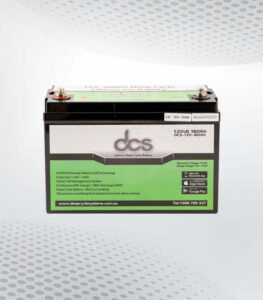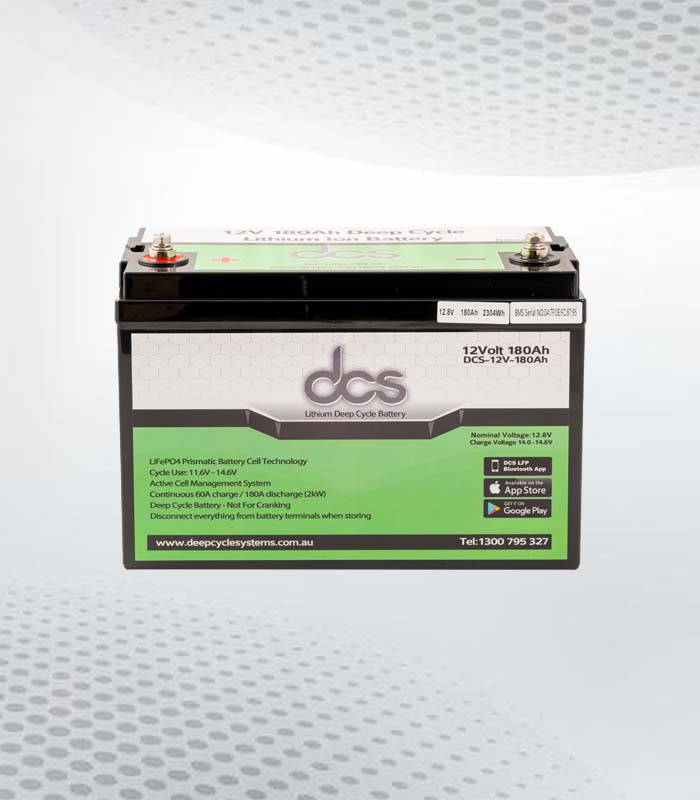In today’s world, where environmental consciousness is at an all-time high, more and more homeowners are looking for sustainable solutions to power their homes. One such solution gaining popularity is the solar battery house system. This innovative system allows homeowners to store the energy generated by their solar panels for later use, reducing their reliance on the grid and cutting down their energy bills.
Understanding the Basics of Solar Battery Systems
At the heart of a solar battery system for your house lies the seamless integration of solar panels with a storage unit, designed to harness and retain the surplus energy generated during optimal sunlight hours. This innovative setup ensures that solar energy is not merely a transient resource but a constant, reliable power supply for your home, irrespective of daylight availability.
The principle is straightforward: solar panels capture sunlight, converting it into electricity. Rather than feeding all this electricity directly into the home or back to the grid, the system channels excess power into the battery.
Here, it’s stored until needed, providing a buffer that guarantees energy availability during nighttime or overcast conditions, thereby enhancing energy independence from the traditional grid. This stored energy can be tapped into on demand, ensuring your home operates efficiently and sustainably, day and night.
The strategic use of a solar battery fundamentally transforms the dynamics of home energy consumption, shifting from a direct, use-it-or-lose-it approach to a more nuanced, managed energy storage and retrieval system. This evolution in energy management not only maximises the utility of every photon absorbed by your solar panels but also empowers homeowners with greater control over their energy destiny, marking a significant step forward in the pursuit of sustainable living.
How Solar Storage Battery Can Slash Your Energy Bills
A solar storage battery is an ingenious method for homeowners to significantly reduce their electricity expenses. During the daytime, when solar panels are most productive, they often generate more electricity than a household can consume.
Without a battery, this excess energy would be sent back to the grid, sometimes for a minimal return. However, by storing this surplus energy in a solar battery, it becomes available for use during periods of high demand, such as evenings when the cost of electricity from the grid is at its peak. Utilising stored solar energy during these times means less reliance on expensive grid electricity, leading to substantial savings on energy bills.
Moreover, with the increasing trend towards time-of-use electricity tariffs, where the cost of grid electricity fluctuates throughout the day, having a solar battery enables homeowners to become even more strategic. They can avoid drawing power from the grid during expensive peak times, further enhancing savings.
This ability to store and strategically use solar energy positions homeowners to not only enjoy reduced energy costs but also offers a buffer against rising energy prices, solidifying the solar battery system as a financially astute choice for energy management in the modern home.
The Environmental Benefits of a Solar Battery for Your House System
Implementing a solar battery system for your house is a significant step towards ecological stewardship. This technology reduces the environmental impact of household energy consumption by harnessing renewable solar energy, a clean and inexhaustible resource.
Unlike traditional energy sources that rely on the combustion of fossil fuels, which emit harmful greenhouse gases contributing to climate change, solar energy, complemented by efficient storage solutions, offers a zero-emission alternative. By storing surplus solar energy for later use, households significantly reduce their demand for grid-supplied electricity, much of which is still generated from non-renewable sources.
This shift not only lessens the strain on our planet’s resources but also decreases air pollution, promoting better air quality and contributing to a healthier ecosystem. Furthermore, the adoption of solar battery systems encourages the development and integration of greener technologies, reinforcing a collective movement towards sustainable energy practices.
As communities transition to these systems, we witness a cumulative effect, amplifying the positive environmental impact. This transformation underscores the role individual actions can play in the broader context of global environmental conservation efforts, highlighting the power of innovative technologies like solar batteries in crafting a sustainable future.
Selecting the Right Battery to Store Solar Energy
Choosing the optimal battery to store solar energy needs requires careful consideration of several key factors to ensure it aligns with your energy requirements and budgetary constraints. Lithium-ion batteries, renowned for their superior energy density, durability, and swift charging capabilities, have emerged as the favoured choice among many homeowners.
These batteries offer a compact and efficient solution for solar energy storage, making them ideal for residential applications. Nonetheless, it’s paramount to engage with a solar energy specialist who can provide tailored advice based on an in-depth analysis of your household’s energy consumption patterns, the capacity of your solar panel system, and specific energy goals.
Additionally, exploring other types of batteries, such as lead-acid and saltwater, might unveil alternative options that, while perhaps not as prevalent, could better suit certain situations or preferences. The decision-making process should also take into account the battery’s lifespan, warranty, and the projected return on investment, ensuring that your choice not only meets immediate energy storage needs but also aligns with long-term sustainability objectives.
By meticulously evaluating these aspects, homeowners can confidently select a solar storage battery that stands as a cornerstone of their solar energy system, fostering a harmonious balance between efficiency, cost-effectiveness, and environmental stewardship.
Integration with Existing Solar Panel Systems
Integrating a solar battery into an already operational solar panel system is a relatively uncomplicated process, serving as a testament to the adaptability of solar energy solutions. For homeowners who have embraced solar panels, adding a solar battery is a logical next step to enhance the system’s efficiency and autonomy. The compatibility between current solar installations and the latest solar batteries means that the transition can often be achieved with minimal disruption.
It is imperative, however, to consult with a specialist who understands the nuances of your specific solar setup. This ensures the solar battery added complements your existing configuration, optimising energy storage and usage. The specialist will evaluate the capacity of your solar panels, assess your energy consumption patterns, and recommend a battery solution that aligns with your household’s needs.
An essential step in this integration process involves understanding the electrical load of your home and how a solar battery can be optimally utilised to meet this demand, especially during periods when solar generation is low. The goal is to achieve a seamless flow of solar energy, whether directly from the panels during sunny periods or from the battery when sunlight is not available, thus ensuring a constant and reliable source of green energy for your home.
Embarking on this upgrade not only signifies a commitment to sustainable energy but also propels your home towards greater energy independence, making the integration of a solar battery with existing solar panels a worthwhile consideration for the eco-conscious homeowner.
Financial Incentives and Support for Solar-powered Battery Systems
Navigating the financial landscape for homeowners interested in embracing solar-powered battery systems reveals a wealth of incentives designed to make the transition more economically viable. Governments across the globe, recognising the pivotal role renewable energy plays in combating climate change, have instituted various schemes to lower the financial barriers associated with installing such systems.
 These may range from direct tax credits that reduce the upfront costs, to rebates that refund a portion of the expense post-installation. Additionally, specific regions offer low-interest loans aimed at spreading the cost over a more manageable period, ensuring that the initial investment does not deter prospective adopters.
These may range from direct tax credits that reduce the upfront costs, to rebates that refund a portion of the expense post-installation. Additionally, specific regions offer low-interest loans aimed at spreading the cost over a more manageable period, ensuring that the initial investment does not deter prospective adopters.
Moreover, certain utility companies contribute to this effort by providing incentives for excess energy fed back into the grid from solar battery systems, further offsetting installation costs. While the availability and specifics of these incentives can vary widely depending on the homeowner’s location, they collectively represent a significant push towards making solar energy storage solutions an attainable goal for a broader segment of the population.
Homeowners are encouraged to conduct thorough research or consult with solar energy specialists to uncover the most current and relevant incentives available in their area, potentially unlocking substantial savings and making the shift to solar energy storage a financially sound decision.
The Future of Home Energy: Trends in Solar Battery
The horizon of home energy systems is being reshaped by continuous advancements in solar battery technology. As we venture further into the realm of sustainability, the efficiency and affordability of solar batteries are set to enhance, making them an integral component of the energy ecosystem.
Innovations are not just confined to the batteries themselves but also to the integration and management systems that optimise their performance and compatibility with existing energy infrastructures. The emergence of smart grid technologies and IoT-connected devices promises a future where solar battery systems intelligently manage energy distribution and consumption, further reducing waste and maximising savings.
Additionally, the push towards eco-friendly materials and manufacturing processes in the production of solar batteries is expected to reduce their environmental impact even further. This evolution signifies a shift towards more resilient and self-sufficient home energy systems, underscoring the pivotal role solar batteries will play in meeting global energy demands sustainably.
As these technologies mature, we anticipate a marked acceleration in their adoption, driven by their economic viability and the growing global commitment to combat climate change.
FAQs
Is it financially prudent to install a solar battery house system?
Indeed, installing a solar battery house system can be a sound financial decision. It enables homeowners to optimise their solar energy usage, significantly reducing dependency on grid electricity, especially during peak tariff periods. Over time, the savings accrued from lower electricity bills can offset the initial investment costs, making it an economically viable option for those seeking to enhance their home’s energy efficiency.
What is the typical lifespan of a solar battery, and what factors influence it?
The durability of solar batteries varies based on the make, model, and how they are used and maintained. Generally, a well-looked-after solar battery can be expected to serve efficiently for approximately 10 to 15 years. Key factors influencing lifespan include the battery’s quality, the depth of discharge (DoD) during regular use, and adherence to recommended maintenance practices.
Can a solar battery system be used in conjunction with grid electricity?
Absolutely, solar battery systems are designed to work seamlessly with grid electricity. This dual-approach ensures that when solar panel generation is insufficient, such as during night-time or cloudy days, the grid can provide additional power. Conversely, when the solar panels produce excess energy, it charges the battery, creating a balanced and efficient energy solution for the household.
Conclusion
Embracing a solar battery house system represents a forward-thinking step towards ecological and financial prudence. It not only paves the way for substantial reductions in electricity expenses by harnessing solar energy more effectively but also champions the cause of environmental sustainability. The transition towards such systems is increasingly supported by a variety of financial incentives, underscoring the growing accessibility and appeal of solar energy solutions.
| Other Good Articles to Read |
| blogs rain |
| Cme Blog Spot |
| Garcias Blogs |
| Yyc Blogs |
| Guiade Blogs |
| Blogs-Hunt |
| Impact-Blog |
| Smarty Blogs |
| Ed Blog |
| Mo Blogs |
| Blogs Em |
| blogs t |
| Related Business Listings |
| Directory Submissions |
| Regional Directory |



